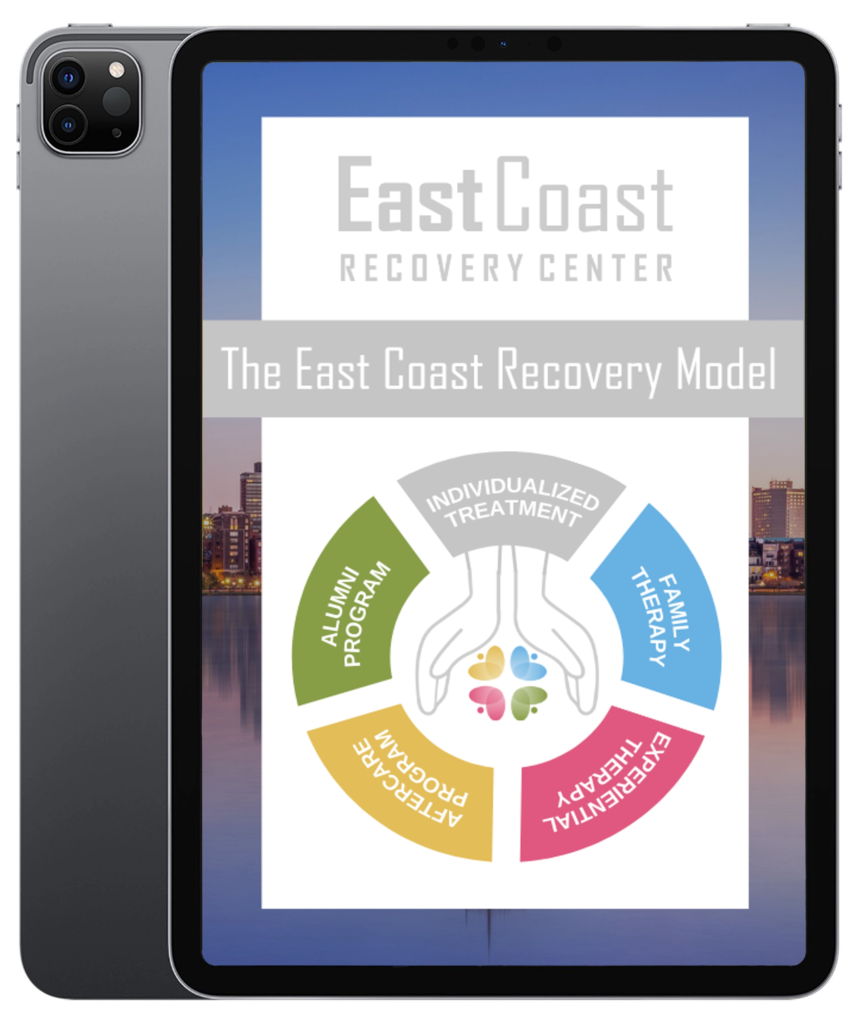Trauma Informed Care Treatment Program

The approaches of trauma-informed care are based on a neurological and cognitive understanding of the way trauma is processed in the brain and are used to translate that science into effective treatment strategies. These methods are not aimed at treating the traumatic event, but instead, assist patients in coping with the symptoms and preventing re-traumatization. Because trauma-informed care is suitable for a variety of health practitioners across a range of settings, a wide variety of health practitioners can use it.
Individuals with substance abuse issues who suffer from post-traumatic stress or experience the lingering consequences of past trauma are assisted through trauma-informed rehab. This method helps people recover by teaching them how to handle their future path in addition to trauma-informed counseling at rehab centers. When people arrive at rehab, they want detox and therapy, but they might not be aware that a trauma-informed approach is a delicate balancing act between who they are now and what they underwent.
No matter what types of drugs or alcohol they used, for whatever reason, how severe their addiction became, or what happened as a result, there is always hope through a trauma-informed lens in order to discover more about themselves and heal. There is also the opportunity to develop from a healing capacity with co-occurring mental health disorders, and that should be considered when developing a program specifically for them.

There is no single trauma therapy, but rather a variety of therapies that may be utilized in conjunction with one another or independently. Every trauma therapy follows a fundamental structure. The three phases of trauma therapy are:
A key element of trauma therapy is helping the client feel safe and secure. The client must learn productive self-soothing and self-care approaches to feel secure. Many victims of psychological trauma use self-destructive self-care methods. Through trauma therapy, the client is enabled to achieve his or her full potential, which contributes to personal growth and safety.
Once the client is prepared to remember the painful event, the second phase is initiated. The client is then allowed to re-experience the traumatic memories in light of the actual events. The client is able to express and experience his or her feelings freely in this phase. The client feels less isolated or distrustful after overcoming the traumatic memories in a safe, trusting environment. The client is also able to remember forgotten traumas. It is less distressing for the client to integrate the traumatic memories into his or her life narrative after being given the opportunity to grieve the loss they caused.
The last phase of treatment addresses the client’s acceptance of the trauma, thereby helping him or her move forward with life. Traumatic memories and emotions become less intense as the client’s symptoms improve. The client is then able to function better in daily life, and he or she can overcome previous dangerous situations with ease. The client has realized that the traumatic incident does not define him or her, and he or she feels empowered as a result.
The last phase of treatment addresses the client’s acceptance of the trauma, thereby helping him or her move forward with life. Traumatic memories and emotions become less intense as the client’s symptoms improve. The client is then able to function better in daily life, and he or she can overcome previous dangerous situations with ease. The client has realized that the traumatic incident does not define him or her, and he or she feels empowered as a result.
An event can be traumatic regardless of where it takes place. It may occur at home, in school, at work, in the community, or in a war zone, for example. Whether an event is considered traumatic is based on the ‘subjective interpretation’ of it rather than the event itself.
An individual can suffer from either physical or emotional trauma. A physical injury is a severe physical wound. An individual who has experienced an emotionally disturbing situation or event will respond emotionally. Acute emotional trauma is a response to an unpleasant event that occurs and ends immediately. A person who has been exposed to prolonged or repeated distressing situations may suffer from chronic emotional trauma. Furthermore, a person who has experienced multiple distressing events that may or may not be connected may experience complex trauma.
Trauma can be a result of the following:
Child abuse
Sexual abuse
Sexual assault
Domestic violence
Victim of crime
Bullying
Neglect
Natural disaster
War
Intergenerational trauma
An individual who has been through a traumatic event may experience both emotional and physical trauma symptoms. Post-traumatic stress disorder (PTSD) or an adjustment disorder may result after a traumatic incident, in addition to an emotional response that changes a person’s attitude, behavior, and interpretation of the world. Life and safety are thought to be in danger, resulting in fear, terror, and helplessness.
Emotional reactions to trauma can manifest as one or a combination of the following:
Fear
Anger
Depression
Paranoia
Helplessness
Denial
Anxiety
Avoidance
Guilt
Withdrawal
Increased heart rate
Body aches
Muscle tension
Feeling on edge
Jumpiness
Insomnia
Nightmares
Difficulty sleeping
Fatigue
Sexual dysfunction
Appetite changes
Excessive alertness
Various treatments can be used in addition to addiction therapy to address trauma. The following are some of the most common ones:
An individual undergoing CBT may be guided to re-evaluate their thoughts and assumptions in order to identify unhelpful thinking patterns (known as “distortions”) such as overgeneralizing negative outcomes, negative thinking that debilitates positive thinking, and always anticipating cataclysms, to more balanced and effective thinking patterns. These help the person re-evaluate their understanding of traumatic experiences, as well as their self-image and coping abilities.
When it comes to treating trauma-informed addiction treatment, many rehabs and clinicians prefer cognitive-behavioral therapy (DBT). This therapy teaches individuals how to handle difficult emotions and alter negative behavior. Borderline personality disorder is one of the conditions that DBT was developed to treat, but it has become a common approach.
The method of EMDR is a therapy that assists patients in dealing with their trauma in order to heal. During EMDR therapy sessions, the client moves his eyes or listens to sounds while recollecting an unsettling event. The client also discusses and processes his trauma memories until PTSD symptoms subside, with the clinician’s assistance.

Some individuals may not be mindful of their trauma, especially if it occurred when they were young, so they may not receive adequate treatment during addiction treatment. This leads to a vicious cycle of relapse that the individual appears unable to break. You may benefit from learning about the various advantages of trauma-focused therapy in order to see if this specialized therapy might be what you need to achieve long-term recovery. Benefits include:
Patients are made to feel physically and mentally safe in trauma-informed care environments. Patients are made to feel safe in any environment where they are present. A patient waiting room, for example, may be made more welcoming to patients by providing more secluded seating instead of long rows of chairs. Patients are more likely to engage with their treatment and discuss their experiences with their healthcare providers if they feel safe and their well-being is being protected.
Healthcare providers can actively avoid re-traumatization by embracing trauma-informed care as a central methodology. Re-traumatization takes place in a variety of ways. For instance, asking survivors to recount their stories repeatedly or forcing them to disclose everything are two examples of re-traumatization. Re-traumatization frequently results in severe mental health issues, such as severe anxiety and clinical depression. Re-traumatization makes the situation worse and can cause serious mental health concerns. Trauma-informed care seeks to prevent this.
In contrast to a doctor telling the patient what he or she should or should not do, care shifts from a paternalistic approach to one that is collaborative. This collaborative approach is crucial because it fulfills another principle of trauma treatment and that is patient choice. Because it is a powerful motivator for patients who may have thought there was no chance of recovery, patient empowerment allows them to make their own decisions.
Individuals who have experienced anything awful frequently feel isolated. They believe they are distinct from everyone else and, therefore, frequently hide their condition in order to fit in. Trauma-informed care can be utilized in a practical setting. People who share the same experience are brought together and integrated into the organization. They are made to believe that an organization can only operate if they are there.
Because trauma and addiction are so deeply connected, people often turn to alcohol and drugs to combat the unpleasant physical and emotional symptoms of trauma. These substances initially seem to be an effective way to lower inhibitions and generate a sense of calm and relaxation, but once the short-term benefits wear off and the trauma and unpleasant feelings from prior trauma are still present, the discomfort returns, and the addiction cycle begins anew. Self-medicating is extremely difficult for people who have not addressed their trauma if they are unable to resist the urge to do so.
Despite the fact that drugs and alcohol appear to be effective, substance abuse leads to dependency over time. On the other hand, some people develop drug or alcohol addictions prior to developing a substance use disorder. Since these individuals consume drugs or alcohol compulsively, they are at risk of being exposed to trauma and, consequently, may develop trauma after addiction and further exacerbate the substance use disorder symptoms.
People who are experiencing PTSD and substance abuse difficulties may benefit from trauma-informed therapy. Because trauma-informed care helps treatment providers understand the consequences of trauma on substance abuse, this approach uses the highest level of care. Rather than concentrating on one specific approach, trauma-informed care refers to a range of therapeutic techniques that help alter the way trauma is processed in the brain in order to reduce symptoms.
When someone has been affected by trauma and addiction, it feels like there is no escape. With the assistance of compassionate professionals and proper treatment, anyone may abstain from addiction and recover from trauma. If you or a loved one is struggling, we are here to assist you. At our dual diagnosis facility in Boston, Massachusetts, we offer long-term, evidence-based, and personalized treatment programs for those with co-occurring disorders. Every client in our program will receive a custom treatment plan, a primary psychotherapist, and a variety of alternative and recreational services and treatment modalities.
Contact the experts at East Coast Recovery to find out more about we can help you or a loved one. You don’t have to struggle alone. We are here to help you.

Download Our FREE East Coast Recovery Model eBook
FREE Insurance Verification









